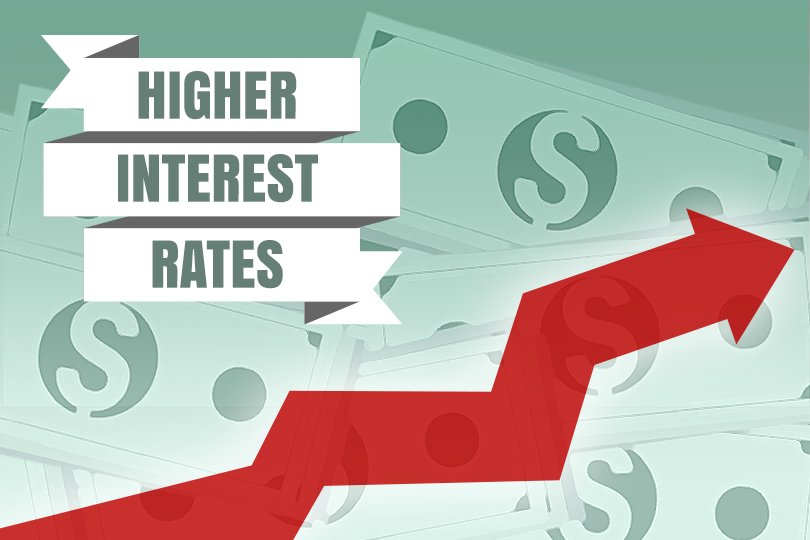What to Do About High Interest Rates?
September 25, 2023
Still, if you feel like you have to buy a home, there are things you can do to get the best rate possible and plan for more affordable times down the road.
Shop Around for the Best Rate
Mortgage rates can vary significantly between lenders. Take the time to shop around and compare rates and terms from different lenders. You can use online tools and consult with mortgage brokers to find the most competitive rates available.
Improve Your Credit Score
Your credit score has a significant impact on the interest rate you qualify for. Take steps to improve your credit score by paying bills on time, reducing outstanding debts, and addressing any errors on your credit report.
Consider a Shorter Loan Term
While shorter-term mortgages typically have higher monthly payments, they often come with lower interest rates. If you can afford the higher monthly payments, opting for a 15-year mortgage, for example, might save you money in the long run.
Lock in Your Rate
If you're in the process of buying a home and think rates will continue to climb, consider locking in your mortgage rate. This means that the lender guarantees you the current rate for a specific period, typically until you close on the home. It protects you from potential rate increases during that time.
Increase Your Down Payment
A larger down payment can help you qualify for a lower interest rate. Lenders often offer better terms to borrowers who can make a higher initial investment.
Consider Adjustable-Rate Mortgages (ARMs)
While fixed-rate mortgages offer stability, adjustable-rate mortgages (ARMs) can have lower initial interest rates. However, they come with the risk of rates increasing over time. ARMs may be a good choice if you plan to sell the property or refinance before the rate adjusts.
Evaluate Your Financial Situation
Assess your financial stability and future plans. If you anticipate higher income in the near future, you might be able to handle a higher rate. Conversely, if you expect financial difficulties, it's essential to secure a mortgage that you can comfortably afford.
Be Patient
Mortgage rates are influenced by various economic factors, and they can fluctuate. If rates are currently high, it might be wise to wait for a more favorable rate environment before making a home purchase.
------------------------------
RELATED VIDEOS:
Let's Talk About Home Equity
Understanding Your Loan Term
Your Home Loan is Called a Mortgage

FHA Loan Articles
February 27, 2025 Buying your first home can feel overwhelming, especially when you start hearing terms like "subprime mortgages" and "FHA loans." Understanding these options is crucial for making the right decision. Subprime mortgages are designed for borrowers with less-than-perfect credit histories. This might include past issues like late payments, loan defaults, or even bankruptcy...
February 26, 2025Buying your first home can be exciting, but the mortgage process often throws a curveball of unfamiliar terms. Here are answers to common questions first-time homebuyers have about mortgage jargon and terms.
February 18, 2025Mortgages typically require mortgage insurance and homeowners insurance. They are both key parts of your home loan but they serve very different functions. Do you know the differences between the two? Find out how ready you are to begin the process of buying your new house.
February 17, 2025The federal government backs FHA home loans, which allows participating FHA lenders to offer lower down payment options and more lenient credit requirements. How much do you really know about your FHA home loan options and how they compare to other mortgage choices?
February 13, 2025For many college graduates, student loan debt is a concern. A common question is how this debt impacts the ability to buy a home. This Q&A explores the relationship between student loans and FHA loan approvals. How much do you know about how your student loan debt affects your ability to be approved for a mortgage?







